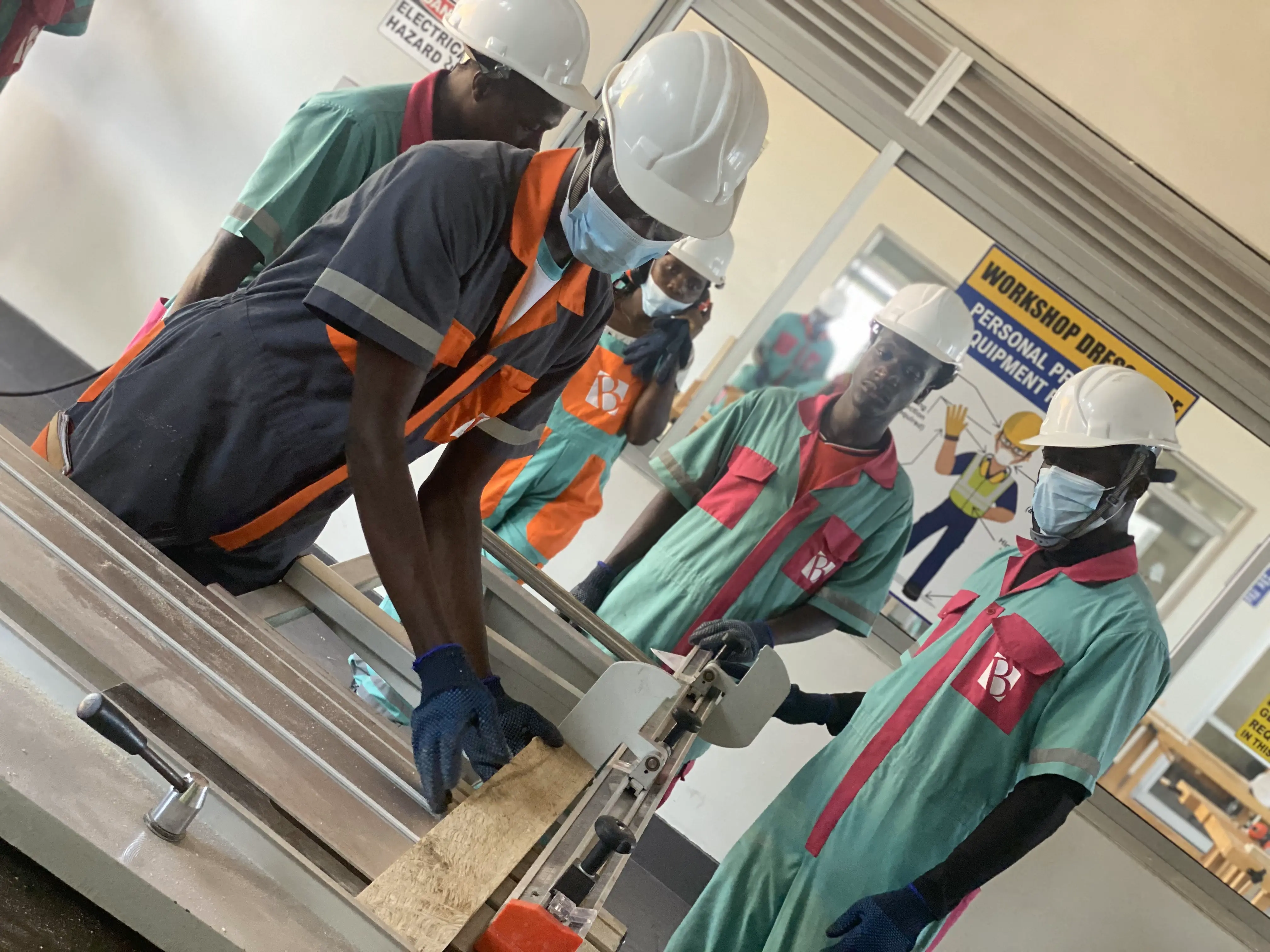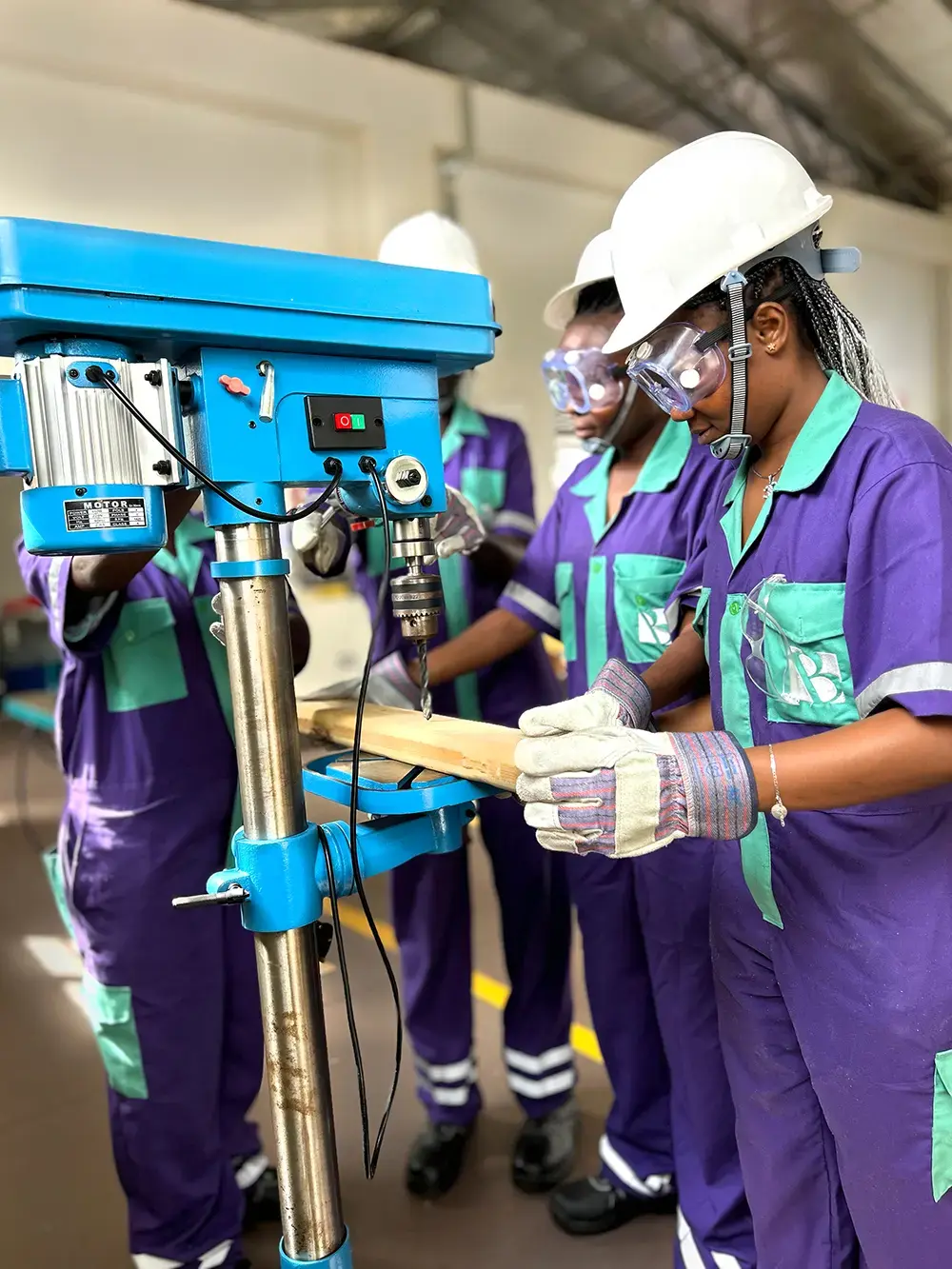BIP’s Apprenticeship-Inspired Approach to Real-World Experience
At Busoga International Polytechnic (BIP), we understand that theoretical knowledge alone is not enough to prepare students for successful careers in engineering and technical fields. In today’s fast-paced job market, employers seek graduates who possess not only academic qualifications but also practical experience and skills. That’s why BIP is committed to providing students with extensive real-world experiences that bridge the gap between education and employment. Our approach aligns with successful apprenticeship models used in the UK and Germany, which have long been recognized for effectively integrating hands-on learning with academic instruction.
1. Hands-On Training Programs
BIP’s training programs emphasize hands-on learning, ensuring that students gain direct experience with industry-standard equipment and processes.
- Workshops and Laboratories: Equipped with state-of-the-art tools and technology, our workshops provide a dynamic environment where students can conduct experiments, build projects, and solve engineering challenges.
- Skill Development: By working directly with equipment and technology, students gain valuable skills that are directly applicable in the workplace, enhancing their readiness for future employment.
This approach mirrors Germany’s renowned dual education system, where students split their time between vocational schools and real-world apprenticeships within companies. This integration helps students develop both theoretical knowledge and practical expertise simultaneously.
2. Industry-Relevant Projects
Real-world experience at BIP goes beyond traditional classroom settings. Students participate in industry-relevant projects that mimic the challenges faced by professionals in their respective fields.
- Collaborative Projects: Students often work in teams on projects that require problem-solving, creativity, and collaboration—key skills that employers highly value.
- Capstone Projects: In their final year, students undertake capstone projects that involve comprehensive research and practical application of their learning. These projects are typically linked to industry needs, providing students with valuable insights into their future careers.
This is similar to the UK’s apprenticeship model, where students engage in structured training programs that combine academic study with workplace experience. The UK’s model ensures that apprentices contribute to real projects within their host companies while receiving mentorship and structured learning.
3. Internship Opportunities
BIP has established strong partnerships with local and international companies, facilitating internship placements that allow students to gain first-hand experience in the industry.
- Real-World Exposure: Internships offer students the chance to work alongside experienced professionals, understand workplace dynamics, and apply their skills in a practical environment.
- Networking Opportunities: Through internships, students build professional connections that can lead to future job opportunities and mentorship.
Like the apprenticeship programs in the UK and Germany, BIP’s internships provide students with structured pathways into employment, ensuring they are work-ready upon graduation. Many apprenticeships in Germany, for example, lead directly to full-time employment, a model that BIP aims to replicate within the East African job market.
4. Industry Collaborations and Partnerships
BIP actively collaborates with various industries to ensure that our training programs remain relevant and aligned with current market demands.
- Guest Lectures and Workshops: Industry experts frequently visit BIP to conduct guest lectures and workshops, sharing their insights and experiences. This exposure helps students understand industry trends and expectations.
- Advisory Committees: We engage industry professionals in our program development through advisory committees, ensuring that our curriculum meets the evolving needs of the job market.
Similar to Germany’s Berufsausbildungssystem (vocational training system), where companies and vocational schools work together to train students, BIP’s industry collaborations ensure that our students are equipped with relevant skills that match employer needs.
5. Field Visits and Industry Tours
To further enhance real-world learning, BIP organizes field visits and industry tours that allow students to see operations and practices in action.
- Exposure to Real-World Environments: These visits provide students with insights into various industries, helping them understand the practical applications of their studies and the different career paths available.
- Learning from Professionals: Students have the opportunity to interact with industry professionals during these visits, gaining knowledge that is not easily captured in textbooks.
These visits resemble the practical learning experiences embedded within the UK and Germany’s vocational education systems, where students frequently engage with real-world industries to supplement their learning.
Conclusion
At Busoga International Polytechnic, we are dedicated to preparing our students for success in the engineering and technical job markets. Our model of integrating hands-on training, industry projects, and internships mirrors the best aspects of apprenticeship systems in the UK and Germany, ensuring that students not only acquire theoretical knowledge but also develop the practical skills and experiences necessary for their careers.
If you’re looking to gain a competitive edge in your engineering journey, consider joining BIP, where real-world experience meets academic excellence!



